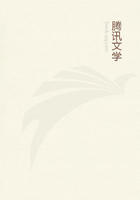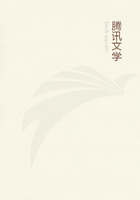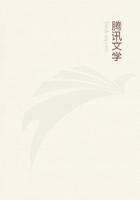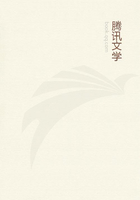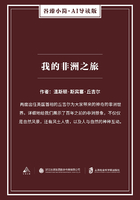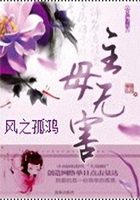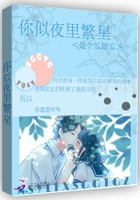It has been generally recognised, and indeed it seems scarcely open to doubt, that the main theme which the poet set before himself in composing this hymn was to describe the traditional foundation of the Eleusinian mysteries by the goddess Demeter. The whole poem leads up to the transformation scene in which the bare leafless expanse of the Eleusinian plain is suddenly turned, at the will of the goddess, into a vast sheet of ruddy corn; the beneficent deity takes the princes of Eleusis, shows them what she has done, teaches them her mystic rites, and vanishes with her daughter to heaven. The revelation of the mysteries is the triumphal close of the piece. This conclusion is confirmed by a more minute examination of the poem, which proves that the poet has given, not merely a general account of the foundation of the mysteries, but also in more or less veiled language mythical explanations of the origin of particular rites which we have good reason to believe formed essential features of the festival. Amongst the rites as to which the poet thus drops significant hints are the preliminary fast of the candidates for initiation, the torchlight procession, the all-night vigil, the sitting of the candidates, veiled and in silence, on stools covered with sheepskins, the use of scurrilous language, the breaking of ribald jests, and the solemn communion with the divinity by participation in a draught of barley-water from a holy chalice.
But there is yet another and a deeper secret of the mysteries which the author of the poem appears to have divulged under cover of his narrative. He tells us how, as soon as she had transformed the barren brown expanse of the Eleusinian plain into a field of golden grain, she gladdened the eyes of Triptolemus and the other Eleusinian princes by showing them the growing or standing corn. When we compare this part of the story with the statement of a Christian writer of the second century, Hippolytus, that the very heart of the mysteries consisted in showing to the initiated a reaped ear of corn, we can hardly doubt that the poet of the hymn was well acquainted with this solemn rite, and that he deliberately intended to explain its origin in precisely the same way as he explained other rites of the mysteries, namely by representing Demeter as having set the example of performing the ceremony in her own person. Thus myth and ritual mutually explain and confirm each other. The poet of the seventh century before our era gives us the mythhe could not without sacrilege have revealed the ritual: the Christian father reveals the ritual, and his revelation accords perfectly with the veiled hint of the old poet. On the whole, then, we may, with many modern scholars, confidently accept the statement of the learned Christian father Clement of Alexandria, that the myth of Demeter and Persephone was acted as a sacred drama in the mysteries of Eleusis.
But if the myth was acted as a part, perhaps as the principal part, of the most famous and solemn religious rites of ancient Greece, we have still to enquire, What was, after all, stripped of later accretions, the original kernel of the myth which appears to later ages surrounded and transfigured by an aureole of awe and mystery, lit up by some of the most brilliant rays of Grecian literature and art? If we follow the indications given by our oldest literary authority on the subject, the author of the Homeric hymn to Demeter, the riddle is not hard to read; the figures of the two goddesses, the mother and the daughter, resolve themselves into personifications of the corn. At least this appears to be fairly certain for the daughter Persephone. The goddess who spends three or, according to another version of the myth, six months of every year with the dead under ground and the remainder of the year with the living above ground; in whose absence the barley seed is hidden in the earth and the fields lie bare and fallow; on whose return in spring to the upper world the corn shoots up from the clods and the earth is heavy with leaves and blossomsthis goddess can surely be nothing else than a mythical embodiment of the vegetation, and particularly of the corn, which is buried under the soil for some months of every winter and comes to life again, as from the grave, in the sprouting cornstalks and the opening flowers and foliage of every spring. No other reasonable and probable explanation of Persephone seems possible. And if the daughter goddess was a personification of the young corn of the present year, may not the mother goddess be a personification of the old corn of last year, which has given birth to the new crops? The only alternative to this view of Demeter would seem to be to suppose that she is a personification of the earth, from whose broad bosom the corn and all other plants spring up, and of which accordingly they may appropriately enough be regarded as the daughters. This view of the original nature of Demeter has indeed been taken by some writers, both ancient and modern, and it is one which can be reasonably maintained. But it appears to have been rejected by the author of the Homeric hymn to Demeter, for he not only distinguishes Demeter from the personified Earth but places the two in the sharpest opposition to each other. He tells us that it was Earth who, in accordance with the will of Zeus and to please Pluto, lured Persephone to her doom by causing the narcissuses to grow which tempted the young goddess to stray far beyond the reach of help in the lush meadow. Thus Demeter of the hymn, far from being identical with the Earth-goddess, must have regarded that divinity as her worst enemy, since it was to her insidious wiles that she owed the loss of her daughter. But if the Demeter of the hymn cannot have been a personification of the earth, the only alternative apparently is to conclude that she was a personification of the corn.

